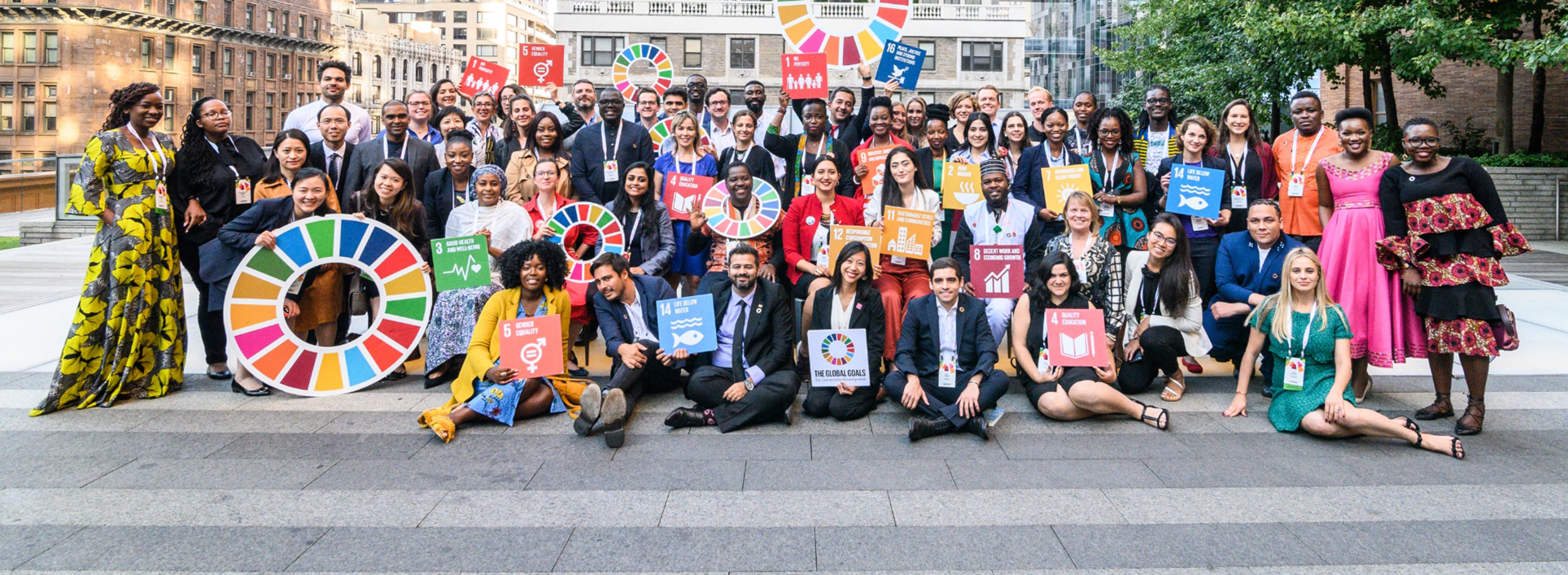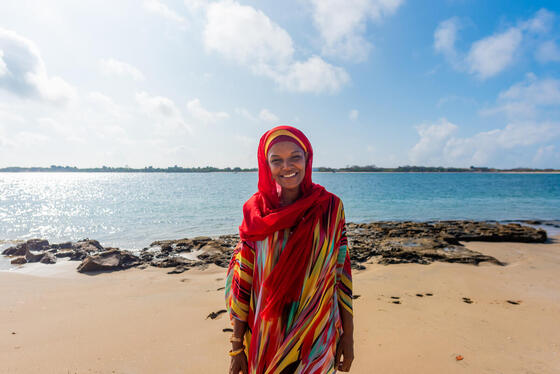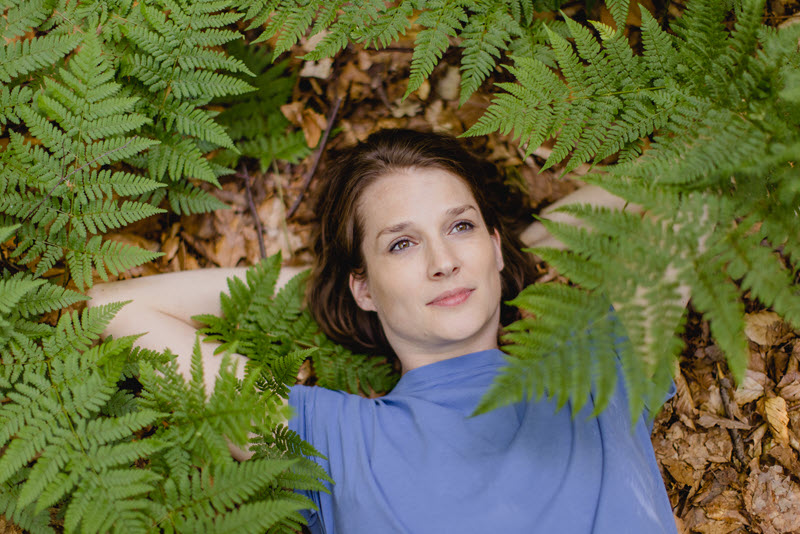
Marcella Hansch Goalkeeper

Marcella Hansch: Architect, Educator, Climate-Action Activist
Founder, everwave
Germany
Goal 14: Life Below Water
Marcella: I spent a lot of my childhood in nature and in the forest. I grew up in Germany. In a small area called Sauerland. It's actually a holiday area with a lot of lakes and forests. My grandfather was really connected to nature, and he instilled in me how important it is that we respect the circle of life.
Blessing: What did you want to be when you grew up?
Marcella: When I was younger, I wanted to be a colleague. My mom was always talking about colleagues and working in teams and with other people. So, I was like, okay, when I’m older, I have to be a colleague. I was always painting a lot as a child, so sometimes I considered being an artist. But finally, I became an architect.
Blessing: I understand you wrote this master’s thesis to address plastics in the water, which then led to a project called Pacific Garbage Screening—the predecessor to everwave, your current organization. What inspired this project?
Marcella: In 2012, I was on holiday with a friend in Cape Verde and I went diving, and something was touching my feet. It turned out to be a plastic bag. I looked around and I saw that there was a lot of plastic in the sand and water. So I dedicated my master’s thesis to a type of technology that would help get all the plastic out of the ocean. There wasn’t a lot of data on plastics at the time, so I focused on the Great Pacific Garbage Patch [a huge collection of debris in the North Pacific Ocean] by creating the Pacific Garbage Screening project. It was a huge platform that worked with the currents to bring plastics to the surface so that they could be skimmed off. But then I realized that the garbage patch is not just on the top of the ocean, it’s breaking down into little pieces, so it’s more like soup. I talked a lot about the topic and showed my project to a lot of people. And then there was a big article in a German newspaper. I received invitations for speeches and awards and somehow the idea exploded even though it was just a concept. It became the beginning of everwave, our worldwide project. In the meantime, we are deployed around the world with our waste collection boats and platforms to collect waste from rivers. In this way, we can stop the waste before it reaches the ocean.
Blessing: Why do you think the issue of plastics in the ocean is such an important issue right now?
Marcella: The oceans are our basis of life. So we are not just saving our oceans, we are saving ourselves. The oceans produce oxygen, so every second breath we take, we do so thanks to the oceans. Plastic is one of the biggest environmental problems, so we can’t ignore it anymore because it is everywhere.
Blessing: What have you learned in your journey working on mindset and behavior change related to the environment?
Marcella: I learned a lot when I talked to kids. I had an interview with two girls who were about 10 years old. One girl said she was arguing with her best friend, who was drinking from a plastic bottle. And she told her, “If you throw it in the garbage, and there’s a storm, the plastic bottle will go into the street and then the river to the ocean, and end up in the stomach of a whale, and the whale is dying. And then you are not my best friend anymore because you are harming nature and our animals.” And she was smiling and said, “My friend will never drink from a plastic bottle again.” It was then that I realized that kids can change the lives of friends in school and their family members. Therefore, our second focus is on environmental education. Among other things, we have developed educational materials, workshops for children, and taken over a sponsorship for a school in Cambodia.
Blessing: What are some small things that everyone can do to be just more conscious of plastic use?
Marcella: The most important thing to remember is that plastic itself is not a bad product. We cannot live without plastic anymore. No computer will work without plastic. A lot of people say, “I need to be perfect. So, from now on, I’m not allowed to use plastic anymore.” And three days later they’re at a supermarket, and they want to buy something and it’s in plastic. So they buy it and think, I can’t do this anymore. People need to stop thinking this way. When you do little things every day, it’s much more important than being the Zero-Waste Hero of the world.
Blessing: My last question for you is what’s keeping you optimistic and what’s pissing you off right now?
Marcella: I think what’s pissing me off are all the single-use masks on the street. If you’re not using it, at least throw it away properly. What keeps me optimistic is that there are so many projects, for-profits, NGOs, and organizations working toward the same goal, not just on oceans but also on climate change, climate activism, and sustainability. We’re really changing the system. All of these movements are getting bigger and make me very optimistic.

Marcella admires the beauty of a forest in Aachen, Germany.
Photo courtesy of Gates Archive/Hannah White